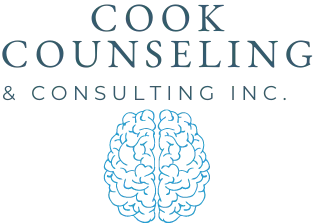Ketamine Assisted Psychotherapy (KAP) is an innovative therapy that combines the benefits of ketamine, a dissociative anesthetic, with traditional psychotherapeutic methods, offering a unique and powerful tool for mental health professionals.
Understanding Ketamine Assisted Psychotherapy
KAP involves the administration of a carefully controlled dose of ketamine under the supervision of a trained therapist. Ketamine, known for its anesthetic properties, has shown remarkable potential in the treatment of various mental health conditions, including depression, anxiety, PTSD, and chronic pain. When used in conjunction with psychotherapy, it can enhance the therapeutic process and lead to profound breakthroughs.
Efficiency in Treating Depression
One of the most notable applications of KAP is in the treatment of depression, especially for individuals who have not responded to conventional antidepressant medications. Research suggests that ketamine can rapidly alleviate depressive symptoms, often within hours or days after treatment. This quick onset of action is a crucial factor in preventing the prolonged suffering that often accompanies traditional treatment methods.
Enhanced Neuroplasticity and Learning
Ketamine’s unique mechanism of action involves modulating glutamate, a neurotransmitter associated with learning and memory. This modulation enhances neuroplasticity, the brain’s ability to reorganize itself, which is crucial for the learning and integration of new, healthier patterns of thinking and behavior. This accelerated learning process contributes to the efficiency of KAP in psychotherapy.
Effective in Addressing Trauma
Ketamine Assisted Psychotherapy has shown promise in the treatment of trauma-related disorders, including PTSD. The dissociative effects of ketamine can facilitate the processing and integration of traumatic memories, allowing individuals to confront and reframe these experiences within the context of therapy. This can lead to significant reductions in PTSD symptoms and an improved quality of life.
Customized and Tailored Experience
One of the key strengths of KAP is its ability to provide a customized and tailored therapeutic experience. The therapist can adjust the dosage of ketamine to meet the individual needs of the client, ensuring a personalized and comfortable journey. This individualized approach contributes to the efficiency of the therapy, as it allows for a more precise targeting of specific mental health concerns.
While ketamine is generally safe when administered in a controlled and supervised environment, safety is paramount in Ketamine Assisted Psychotherapy. Trained professionals closely monitor clients throughout the session to ensure their well-being and address any potential adverse effects. This commitment to safety contributes to the efficiency and reliability of KAP as a therapeutic intervention.
Bottom Line
Ketamine Assisted Psychotherapy is ushering in a new era in mental health treatment by offering a rapid and efficient approach to address various conditions. From depression to trauma-related disorders, the evidence suggests that KAP can bring about transformative changes in a shorter timeframe compared to traditional therapies. We will be more than happy to help you navigate this mental health approach at Cook Counseling and Consulting Inc. Book a session today by dialing 614-835-6068.
References
Mandal S, Sinha VK, Goyal N. Efficacy of ketamine therapy in the treatment of depression. Indian J Psychiatry. 2019 Sep-Oct;61(5):480-485. doi: 10.4103/psychiatry.IndianJPsychiatry_484_18. PMID: 31579184; PMCID: PMC6767816: https://www.ncbi.nlm.nih.gov/pmc/articles/PMC6767816/
Rădulescu I, Drăgoi AM, Trifu SC, Cristea MB. Neuroplasticity and depression: Rewiring the brain’s networks through pharmacological therapy (Review). Exp Ther Med. 2021 Oct;22(4):1131. doi: 10.3892/etm.2021.10565. Epub 2021 Aug 5. PMID: 34504581; PMCID: PMC8383338: https://www.ncbi.nlm.nih.gov/pmc/articles/PMC8383338/

